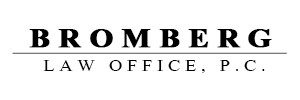Medical emergencies, natural disasters, lost jobs, divorces, deaths, and other tragedies that life throws at us can change our financial situation in a heartbeat. No one can be prepared for every possibility, and when financially things get tough the situation can seem hopeless. It is not. There are laws designed to help you dig your way out, and there are attorneys to help you. One potential solution is bankruptcy. While it is certainly no one’s first choice to deal with financial difficulties, sometimes it is the best option given an individual’s circumstances. If it is something you have to consider, we can be of help. There are two main types of bankruptcy that individuals can file for: Chapter 7 and Chapter 13.
What is Chapter 7 Bankruptcy?
Chapter 7 Bankruptcy is a type of bankruptcy under the federal Bankruptcy Code. If you have an idea of what bankruptcy is in your mind, it is likely a Chapter 7 bankruptcy you are imagining. Theoretically, this bankruptcy results in liquidation of your assets in order to resolve your debts. But the good news is that when you file for this type of bankruptcy, you are allowed to keep certain “exempt” property. Depending on your situation, these “exemptions” might protect most or even all of your property. The best way to learn about how much of your property would be protected is to consult a bankruptcy attorney at Bromberg Law Office, P.C. After your bankruptcy discharge, many of your unsecured debts are wiped clean Certain debts cannot be wiped clean. These debts include certain tax debts, child and spousal support, and, in many situations, student loan debt.
What is Chapter 13 Bankruptcy?
Chapter 13 Bankruptcy is a different type of bankruptcy also found in the federal Bankruptcy Code. While Chapter 7 bankruptcies result in liquidation, the purpose of a Chapter 13 bankruptcy is reorganization. If you have enough financial resources to fund a viable plan to pay your debts over time, this may be the only bankruptcy option available to you. In a Chapter 13 bankruptcy you propose a plan to pay your creditors over a three to five year period. The plan must provide unsecured creditors with at least as much payment as they would receive in a Chapter 7 liquidation. It must also either be agreed to by the creditors, result in a full repayment of the creditors, or commit all of your disposable income for a period of time determined by your income. The credit consequences of one of these bankruptcies are still severe, but they are not as severe as the consequences of a Chapter 7 proceeding.
Call Bromberg Law Office, P.C.
Sometimes the debt becomes too much and you need a new start. In these situations, as scary as it sounds, sometimes bankruptcy is your best option. If you are considering this step you need the assistance of an experienced bankruptcy attorney. The Bromberg Law Office can help. Our consumer focused practice puts us in an excellent position to understand your situation.
Call us today at (212)248-7906 or fill out the form below.
